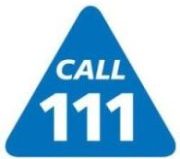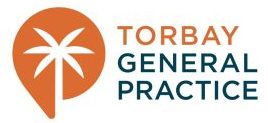Compass House Medical Centres
King Street Brixham TQ5 9TF and 2 Langdon Lane Galmpton TQ5 0PG
Telephone: 01803 855897
Sorry, we are currently closed. Please call NHS 111. In the event of an emergency dial 999.

Over 40? Interested in brain health research? Breast Care Unit – Charity Fundraising Update Windy Corner roadworks delays 🎉 We’ve done it! We successfully completed the 15,000ft charity Skydive 🎉 💕 Raffle in aid of Torbay Breast Care Unit 🎗️ – Raffle now closed
Overseas Patients
Eligibility for treatment is not defined by nationality, payment of taxes, NI etc but based on residency. If you are ordinarily resident in the UK (see below for definition) you are eligible for free treatment. If you are a visitor then you may have to pay – see the section on Overseas visitors.
Overseas students on full time courses do not have to pay.
Asylum seekers and refugees do not have to pay.
Ordinarily resident – living in the UK for 90 days or more in a year.
Detail
Free GP treatment is based on residence in the UK, not on nationality, the payment of UK taxes or National Insurance contributions. A person who is regarded as ordinarily resident in the UK is eligible for free treatment by a GP. A person is ‘ordinarily resident’ for this purpose if lawfully living in the UK for a settled purpose as part of the regular order of his or her life for the time being. Anyone coming to live in this country would qualify as ordinarily resident.
Overseas visitors to the UK are not regarded as ordinarily resident if they do not meet this description. For example, a person who emigrated from the UK, but returns sometimes for visits is not seen as ordinarily resident, regardless of any previous UK taxes or contributions they have paid or receive. He or she would not normally be entitled to free NHS treatment from a GP. Any person who leaves this country to live abroad should be removed from his or her GP list after 3 months.
There are however some circumstances which entitle overseas visitors to free treatment:
Asylum seekers and refugees given leave to remain in the UK, or awaiting the results of an application to remain, are regarded as ordinarily resident and entitled to full NHS GP treatment.
EEA nationals carrying form E128 (short-term posted workers or students and their accompanying dependants) are entitled to free NHS GP treatment. EEA member states include Austria, Belgium, Denmark, Finland, France, Germany, Greece, Iceland, Ireland, Italy, Liechtenstein, Luxembourg, Netherlands, Norway, Portugal, Spain and Sweden.
EEA nationals carrying form E112 (specified medical conditions) are entitled to free NHS GP treatment for that condition.
Any person, whether ordinarily resident or not, requiring treatment that a GP regards as emergency or immediately necessary shall receive that treatment free of charge, whether registered with a GP or not.
GPs have the choice of accepting patients either as fully registered patients or as temporary residents if they are in the area for more than 24 hours but less than three months. They may offer to accept non-qualifying patients as private patients, liable to pay fees for treatment.
Am I entitled to access primary care services?
While visiting the UK you may approach any GP practice within the area you are residing and ask to be accepted as a NHS patient. GP practices are free to decide which patients they accept on to their list of NHS patients. They are, however more likely to accept you if you are intending to live in the UK on a settled basis. If the practice does not wish to accept you on to its list of NHS patients, the practice may offer to treat you as a patient on a private, paying basis.
During your visit to the UK, if you require treatment that a GP or healthcare professional regards as emergency or immediately necessary, you will receive that treatment free of charge, regardless of whether you are registered with a GP practice or not.
Am I entitled to help with the costs of non-emergency NHS treatment?
Information about help with health costs is detailed in leaflet HC11 ‘ Are you entitled to help with health costs?’
What are the other exemptions from charge for NHS hospital treatment?
Please see the page ‘Full list of exemptions from charges’.
Are you coming to the United Kingdom on holiday or to visit relatives?
Rules, procedures and documentation on access to hospital and primary health care, NHS charges and exemptions.
Do I have to pay for emergency treatment if I have an accident?
Regardless of residential status or nationality, emergency treatment given at Primary Care Practices (a GP) or in Accident and Emergency departments or a Walk-in Centre providing services similar to those of a hospital Accident and Emergency department is free of charge.
In the case of treatment given in an Accident and Emergency department or Walk-in Centre the exemption from charges will cease to apply once the patient is formally admitted as an in-patient (this will include emergency operations and admittance to High Dependency Units) or registered at an outpatient clinic.
If I should need hospital treatment what documents will I need?
The Regulations place a responsibility on individual hospitals to determine whether, in accordance with the Regulations, a patient is liable to be charged for treatment or not. In order to establish entitlement, hospitals can ask you to provide documentation that supports your claim that you have come to the UK on holiday or to visit relatives. It is for you to decide what to supply, however examples of evidence could include:
- passport or identity card
- travel documents.
What if I do not meet one of these exemptions from charges?
If you are not ordinarily resident or exempt under the regulations, charges will apply for any hospital treatment you receive and cannot be waived. If this is the case you are strongly advised to take out private healthcare insurance that would cover you for the length of time you are in the UK. There is no facility to purchase healthcare insurance from the NHS therefore any necessary insurance must be organised privately.
All EEA Memebers are eligible for treatment –
Austria, Belgium, Cyprus, Czech Republic, Denmark, Estonia, ;Finland, France, Germany, Greece, Hungary, Italy, Latvia, Lithuania, Luxembourg, Malta, Netherlands, Poland, Portugal, Republic of Ireland, Slovakia, Slovenia, Spain, Sweden, UK, plus Iceland, Liechtenstein and Norway.
Switzerland by special arrangement.
Plus
Nationals of, and UK nationals in, the following countries:
Armenia, Azerbaijan, Belarus, Bosnia, Bulgaria, Croatia, Czech Republic, Georgia, Gibraltar, Hungary, Yugoslavia i.e. Serbia & Montenegro, Kazakhstan, Kirgizstan, Macedonia, Malta, Moldova, New Zealand, Poland, Romania, Russia, Slovak Republic, Slovenia, Tajikistan, Turkmenistan, Ukraine, Uzbekistan.
Residents irrespective of nationality of the following countries:
Anguilla, Australia, Barbados, British Virgin Islands, Channel Islands, Falkland Islands, Iceland, Isle of Man, Montserrat, St. Helena, Turks and Caicos Islands.
What if I should need hospital treatment?
Under the current Regulations, anyone who comes to the UK on holiday or for a short term visit will have to pay for any NHS hospital treatment they may need while they are here, unless they meet the criteria for one of the exemptions from charges. This includes people coming to visit relatives who are ordinarily resident in the UK. Their entitlement to free treatment does not extend to you, even if you are going to be staying with them for several weeks or months. If you think you will have to pay for treatment, you are strongly advised to take out health insurance before you travel.
Visiting from a country with which the UK has a bilateral healthcare agreement? If you come from a country with which the UK holds a bilateral healthcare agreement then you will be exempt from charges for treatment that is needed promptly for a condition that arose after you arrived in the UK. Please contact the relevant authorities in your own country for further details of the arrangements covered by the bilateral healthcare agreements.
In common with those ordinarily resident in the UK, anyone who meets the criteria of ordinary residence or is exempt from charges will have to pay statutory NHS charges, eg prescription charges, unless they also qualify for exemption from these, and will have to go on to waiting lists for treatment where appropriate.
Brixham
- Monday
08:00am to 06:00pm
- Tuesday
08:00am to 08:00pm
*6PM-8PM Extended Access - Wednesday
08:00am to 06:00pm
- Thursday
08:00am to 06:00pm
- Friday
08:00am to 06:00pm
- Saturday
CLOSED
- Sunday
CLOSED
Galmpton
- Monday
08:00am to 05:30pm - Tuesday
08:00am to 05:30pm - Wednesday
08:00am to 05:30pm - Thursday
08:00am to 05:30pm - Friday
07:00am to 05:00pm
*7AM-8AM Extended Access - Saturday
CLOSED - Sunday
CLOSED








